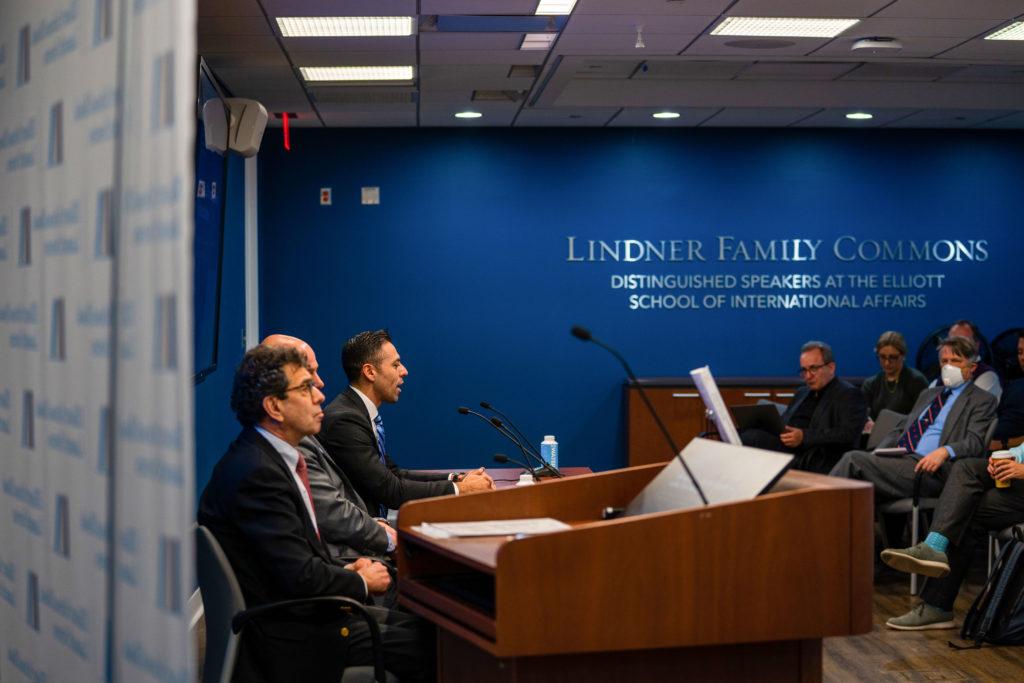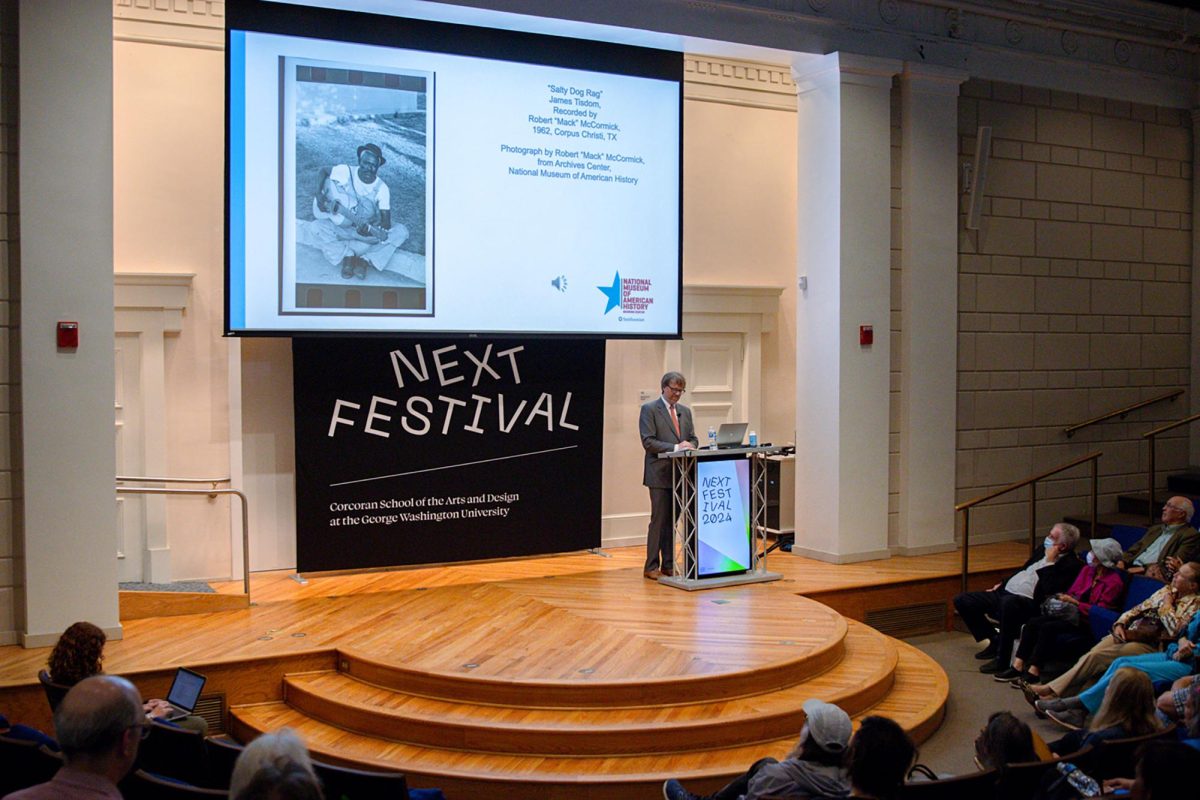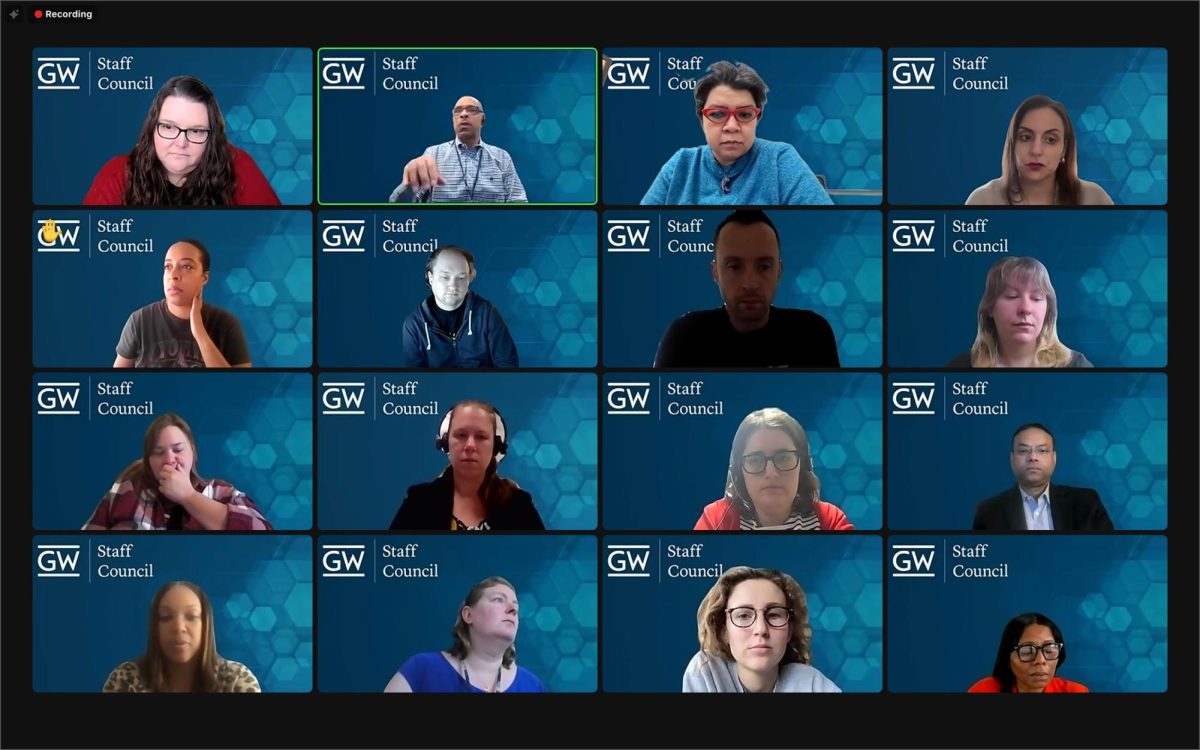Authors of “Managing U.S. Nuclear Operations in the 21st Century,” an analysis of the country’s nuclear weapons arsenal and management, gathered to discuss selected chapters from the book Wednesday.
The panelists and authors of the book, Elaine Bunn, John Harvey and Claude Robert Kehler, discussed how U.S. nuclear war plans are developed and maintained as well as U.S. command and control systems’ vulnerability to attack. The GW Institute for Security and Conflict Studies, the Elliott School of International Affairs Book Launch Series and the Security Policy Studies program organized the event, which was moderated by a co-editor of the book, Charles Glaser and held at the Elliott School.
Alyssa Ayres, the dean of the Elliott School of International Affairs, said the goal of the book aligns with the Elliott School’s mission of educating the next generation, conducting research and engaging the public and policy community.
“This book represents a remarkable, multiyear and collaborative effort to bring civilian and military leaders together to map out a framework for U.S. nuclear strategy since the end of the Cold War,” Ayres said.
Kehler, the former commander of the United States Strategic Command who now serves as a senior fellow at National Defense University, said he focused on the human dimension of U.S. nuclear operations in his chapter of the book. He read aloud portions of the chapter, emphasizing the importance of having a structured personnel system devoted to managing and operating the country’s nuclear assets.
“Although policy plans and hardware typically dominate the conversation, men and women who operate our nuclear forces and maintain, secure and support the nuclear mission form the most important component of the U.S. nuclear deterrent,” Kehler said, quoting from his chapter in the book.
Harvey, a physicist with more than 40 years of experience working on nuclear weapons, previously served as the principal deputy assistant secretary of defense for nuclear, chemical and biological defense programs in the Department of Defense.
Harvey spoke about the technical side of the U.S.’s nuclear command and control program, known as NC2, namely updating the country’s satellite detection system. He wrote that while the foreign policy landscape changes, technological improvements occur and diplomatic relations develop, the country’s command and control program must transform as well.
He listed issues with modernization that might complicate the current program and offered several solutions to adapt it, like securing the system’s aging cyber-based components against possible hacking attempts.
“Today’s NC2 system is a legacy of the Cold War,” Harvey said. “It is fundamentally the same system that we had in place in the 1970s.”
Bunn, a consultant on strategic issues and a nonresident senior adviser at the Center for Strategic and International Studies’ Project on Nuclear Issues, said it is important for the country to focus on the diplomatic side of nuclear operations.
“Understanding nuclear operations in U.S. alliances is about a whole lot more than just the weapons or what you think of as military operational details,” Bunn said.
The panel then took questions from the audience, each speaking from their areas of specialization.
“One thing you see from this panel, and you see it through the book, is just the depth of expertise and experience that comes through and the kind of nuances you don’t get from newcomers,” Glaser said.










